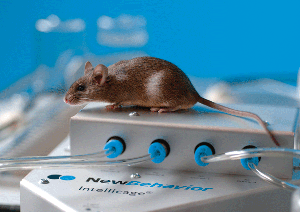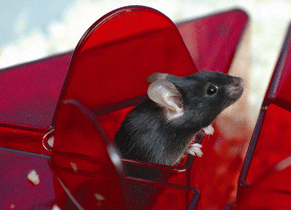You may customize our services in form of consulting contracts or by purchasing individually-tailored customizable packages.
We would be happy if you contacted us so that we can find the most appropriate way to service your research goals.
We may then proceed along the following lines:
- Identifying your needs and how we can assist you most efficiently.
- Working out a list of deliverables, outlining scope and workload of the project.
- Preparing a quote for a contract or custom-made package.
- Developing the project in close consultation with you.
- Delivering our services according to quotation.
- Of course, you may expand any portion of interest, at any time.
Customize our expertise to master your research and understand your data!

Master Your Research
You may greatly profit from our services, particularly if engaged in research on
- Behavioral Neurobiology, Pharmacology or Genetics
- Empirical Medicine and Psychology
- Animal Behavior, Ecology or Evolutionary Biology
- Phenotyping knock-outs or any other model
and have to most efficiently get along with
- Validation of methods, e.g., for grant applications
- Getting data into most convenient form for analysis
- Applying scripts for data extraction and parameter estimation
- Selecting appropriate statistics from a plethora of methods
- Preparation of methods and results sections
- Presentation of graphs and statistical tables
Outsourcing the tedious work on data has probably been the dream of many a researcher. While gathering, preparing, analyzing, and presenting hard earned results is by no doubt at the base of research work in quantitative sciences, it is often as boring and time-consuming a process, as sequencing is to the molecular geneticists: a task required to be performed, but preferably with as little an effort as possible.
Up to the event of the open-source R-project, running a business from providing customized statistical routines that would spare the researcher from time-consuming efforts appeared to be impossible, as professional software (notably, SAS) had to be used that was not available at prices allowing for affordable customized programming. A way out were powerful statistical tools driven by a user-friendly interface that provided for all possible standard statistics (notably, SPSS), leaving the process of data preparation and finding/applying the appropriate statistics and graphics production to the user. With the help of statistical departments, institutions could provide help to have the researcher perform this latter tasks, after all. But as is well-known, statistical departments become quite self-sufficient after a while, most often leaving the bulk of work with the researcher and his statistical tools.
With the advent of an open-source statistical programming software, eventually these chains appear to be broken: scripts for data manipulation and statistical analysis as well as result presentation tailored exactly to the researcher’s needs can now be provided at reasonably low costs. Of course, R is around for some time now, but naturally its potential needed some time to be known and accepted by the scientific community. Eventually however, R has become a fully accepted project, with a large proportion of scientific publications in the highest ranking journals referring to it, so that now there seems to be no obstacle anymore to provide a service as envisioned by us. In our view, this should be a win-win approach by any measure!
No doubt, standardization of behavioral tests is of paramount importance, both in regard to reaching at comparable results as well as in respect to agreed-upon data analysis procedures. Notwithstanding the fact that, given the vast amount of possible research questions and the small size of the market, there still remain nearly as many experimental setups as there are research questions, some apparatus have proven valuable in diverse applications. Notably, a range of standard procedures have evolved, from skinner box – derived conditioning devices, phenotyping apparatus like open fields, shuttle boxes, water and other mazes, to automated, highly flexible and high throughput systems like the IntelliCage and others.
But while the apparatus largely prescribes the data structures of results, analysis software is still rarely tailored to them. Rather, researchers have to adapt data input, analysis and presentation methods, to the requirements of a whole range of commercially available software packages. Or they are forced to produce their own code, be it for commercial or open source statistical analysis software. No matter what, the analysis process has to be run in terms of statistical jargon, nowadays mostly fit to some modelling approach, like linear, non-linear, mixed models, Bayesian approaches, generalised or not. In contrast, the researcher would frame the analysis goals within the different aspects of behavioral results to be looked at, not the different statistical approaches that could be applied (actually, the latter often detracts from the former).
In other words: the researcher wants to know, if the knockout mouse performs differently, a drug has desired effects on some behavioral aspect, some peculiarity is genetically determined, the striatum is involved rather than the hippocampus, … NOT whether some MCMC algorithm application speaks against randomness, a BLUP is greater than 0, how a design matrix fits the desired contrast, how to impute data, and so on.
This incongruity vanishes with the event of our new and unique user interface for statistical processing! By controlling the analysis process at a mouse click on units representing the appropriate R-scripts, the researcher can analyze the data driven by answering biological questions, rather than by drawing from diverse statistical concepts. Eventually, the researcher can pick whatever aspect of outcomes is of interest, not having to be concerned with statistical methodology, at all. Hence, it is our goal to provide apparatus-specific software packages tailored to the questions of the researcher, allowing for data analysis driven by scientific curiosity, not by statistical methodology!

Understand Your Data
Our expertise stems from years of conducting research and teaching courses in academic and company environments, and publishing in diverse areas of animal behavior, neuroscience, ecology and phenotyping, using a vast range of techniques and apparatus. Combined with our new programming approach to custom-tailored data managment and statistical analysis software, you may greatly profit from our expertise in:
- Quantitative empirical and experimental studies of animal behavior (from lab mouse knockout phenotyping to bioacoustics in free ranging animals to socioecology).
- Generalized linear and nonlinear (mixed) modeling and a plethora of specific (non-) parametric statistical tools, including general conditioning analysis (SPRT).
- Scientific publication in high-rated journals spanning from behavioral phenotyping to behavioral ecology to neurogenetics, as well as prestigious grant acquisition and editorial engagement.
- High-level customer service, student supervision and customer seminars, as well as university courses and lectures.
- Intimate knowledge and experimental experience with (semi-) automated phenotyping and conditioning systems. These include most classical phenotyping paradigms like Morris Water Maze and other mazes, Fear Conditioning, Attentional set-shift, Novelty, Impulsivity, Anxiety tests, Open field, Rotarod, PPI, etc., as well as RFID-based conditioning systems like IntelliCage.